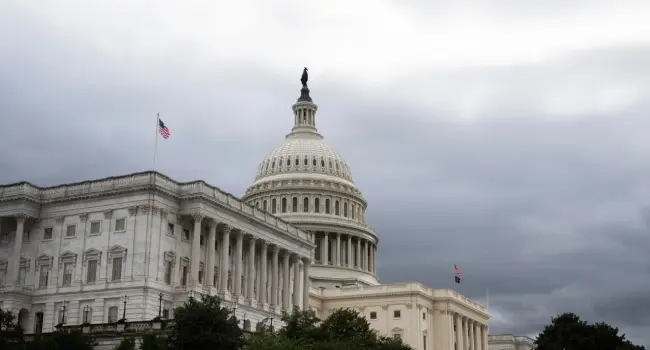The United States House of Representatives Subcommittee on Africa has scheduled a hearing on Thursday, November 20, 2025, to investigate President Donald Trump’s recent decision to redesignate Nigeria as a “Country of Particular Concern” (CPC) over alleged attacks on Christians.
The hearing, organized by the Committee on Foreign Affairs and chaired by Representative Chris Smith (R-NJ), will begin at 11:00 a.m. in Room 2172 of the Rayburn House Office Building and will be webcast live. Two panels of witnesses are expected, including senior US State Department officials and Nigerian religious leaders.
The subcommittee’s invitation stated: “You are respectfully requested to attend an open hearing of the Committee on Foreign Affairs to be held by the Subcommittee on Africa at 11:00 a.m. in Room 2172 of the Rayburn House Office Building.”
Nigeria was first designated a CPC by Trump in 2020, a designation later revoked by President Joe Biden. On October 31, 2025, Trump reinstated the designation, citing “severe violations of religious freedom,” particularly the persecution of Christians amid repeated attacks, kidnappings, and church burnings by extremist groups.
Trump warned that the US could halt all aid to Nigeria and even take military action if the Nigerian government failed to address the alleged killings. “If the Nigerian Government continues to allow the killing of Christians, the USA will immediately stop all aid and assistance… and may very well go into that now-disgraced country, ‘guns-a-blazing,’ to completely wipe out the Islamic terrorists,” he stated on November 1, 2025.
The hearing will feature two panels. Panel one includes Jonathan Pratt, Senior Bureau Official of the Bureau of African Affairs, and Jacob McGee, Deputy Assistant Secretary of the Bureau of Democracy, Human Rights, and Labor. The second panel features Nina Shea, Director of the Centre for Religious Freedom; Bishop Wilfred Anagbe of Makurdi Catholic Diocese; and Oge Onubogu of the Centre for Strategic & International Studies.
The subcommittee will examine the extent of religious persecution in Nigeria and consider potential policy responses, including targeted sanctions, humanitarian assistance, and cooperation with Nigerian authorities. A related bill is also before the US Senate, sponsored by Senator Ted Cruz.
Nigeria responds
President Bola Tinubu rejected the allegations, saying they misrepresent Nigeria’s commitment to religious liberty. In a statement on X, he said: “Nigeria stands firmly as a democracy governed by constitutional guarantees of religious liberty. Religious freedom and tolerance have been a core tenet of our collective identity and shall always remain so. Nigeria opposes religious persecution and does not encourage it.”
Pope Leo XIV voices concern
Pope Leo XIV has also expressed concern over violence against Christians in Nigeria and other countries. On his verified X handle (@Pontifex), he cited Nigeria, Bangladesh, Mozambique, and Sudan as regions where worship centers are reportedly targeted. He prayed for peace and for victims of recent attacks, including a civilian massacre in Kivu, Democratic Republic of Congo.
Tinubu dispatches emissary to Plateau state
In response to ongoing communal tensions, President Tinubu sent Dr. Abiodun Essiet, Senior Special Assistant on Community Engagement for the North Central Zone, to Plateau State. Essiet met with Christian clerics, Fulani Miyetti Allah leaders, and local youth groups to foster dialogue and peace. The Presidential spokesperson, Bayo Onanuga, said the mission aimed to strengthen grassroots unity and ensure long-term stability in the North Central region.


